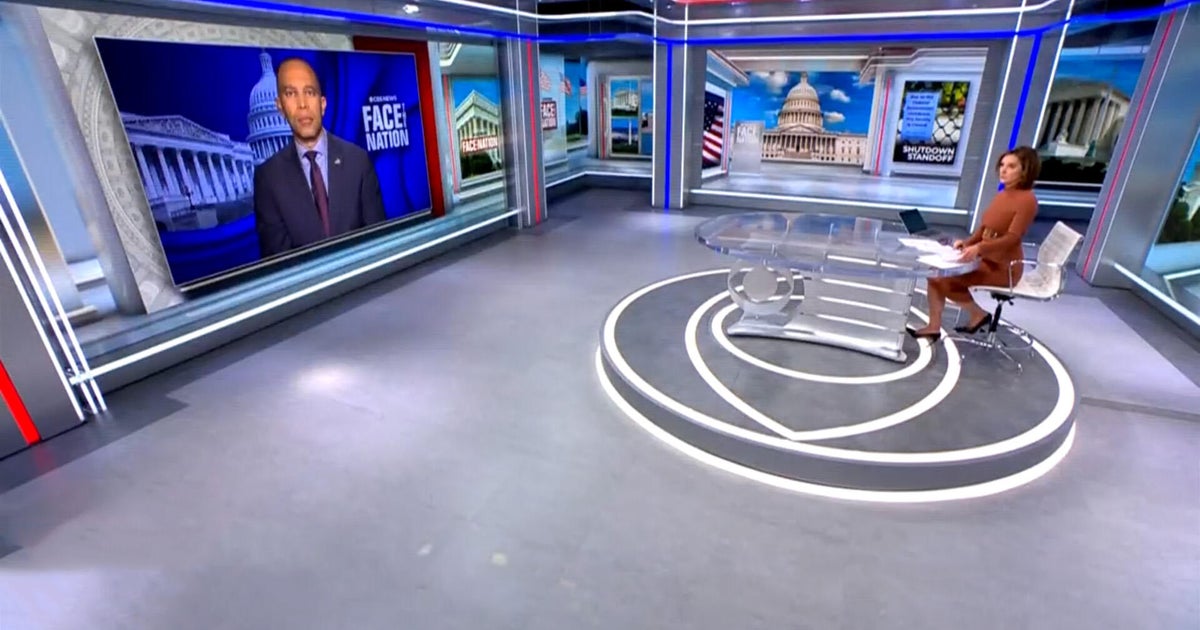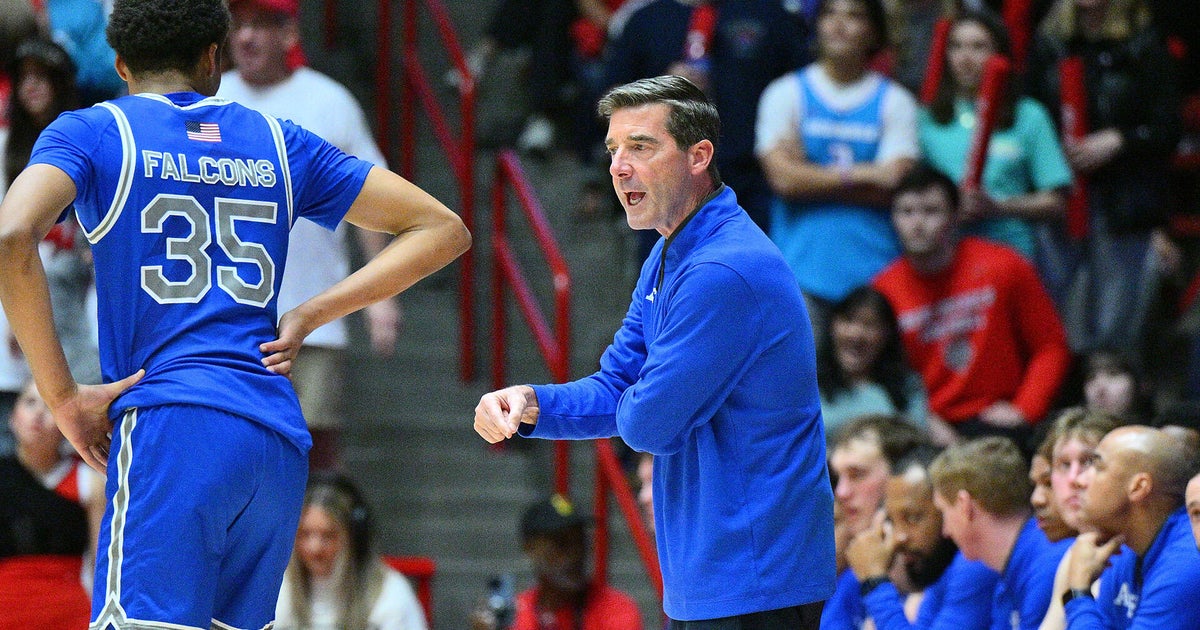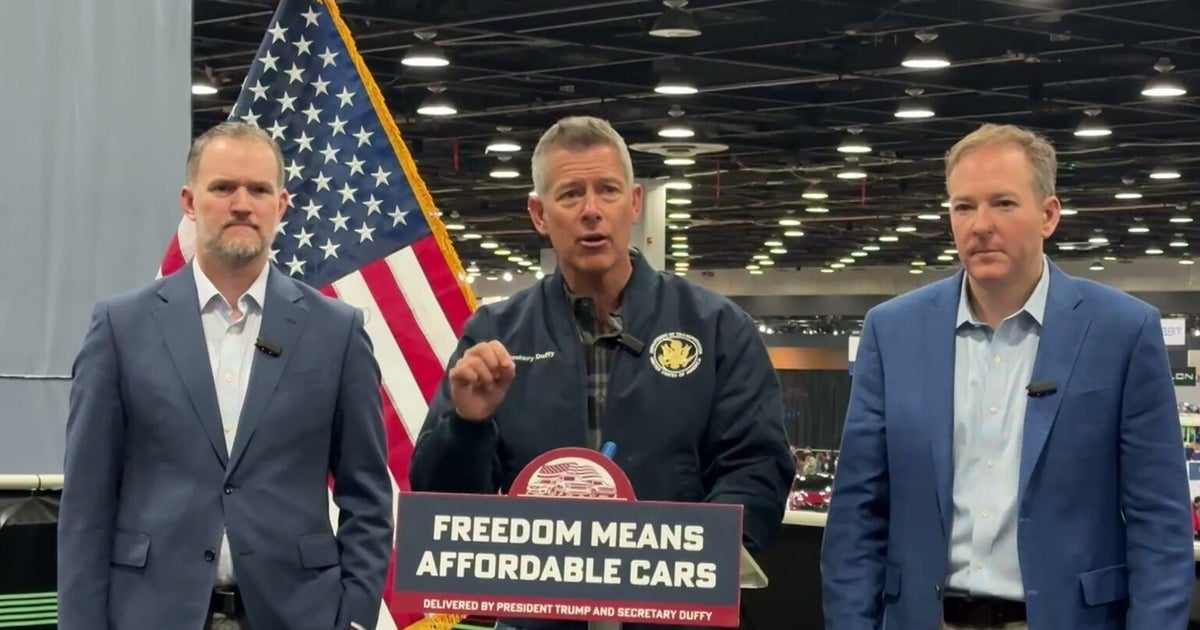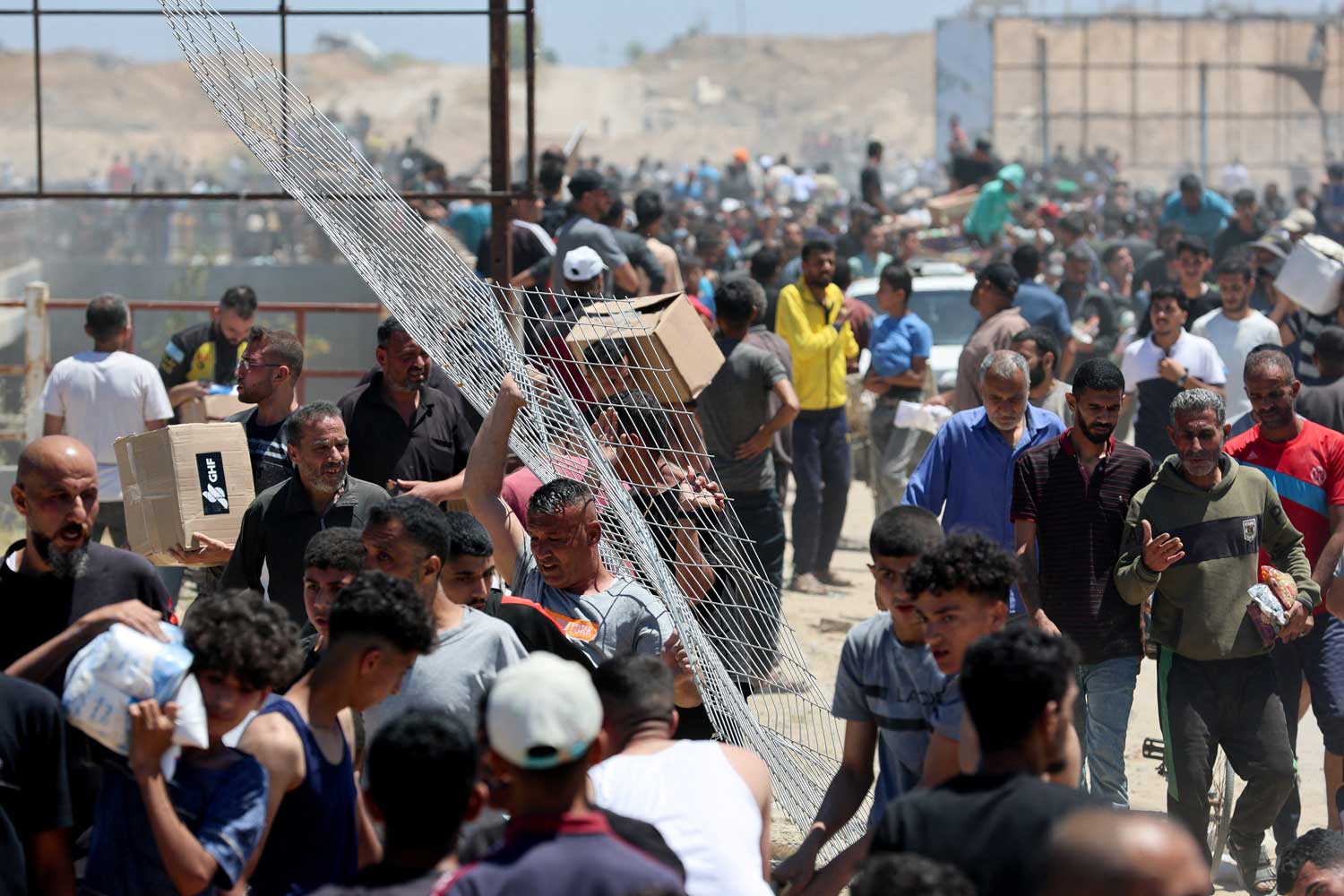Transcript: Scott Anderson, director of UNRWA Affairs in Gaza, on "Face the Nation," June 2, 2024
The following is a transcript of an interview with Scott Anderson, director of UNRWA Affairs in Gaza, on "Face the Nation" that aired on June 2, 2024.
MARGARET BRENNAN: Joining us is Scott Anderson. He is the director of the UN's refugee efforts in Gaza. UNRWA is the largest relief agency for Palestinian refugees and he joins us right now from Amman, Jordan. Scott, I know you were in the U.S. Army, you served two tours in Afghanistan. From what you've seen in Gaza, how does it compare? Sorry, I cannot hear Scott right now.
DIRECTOR OF UNRWA AFFAIRS GAZA, SCOTT ANDERSON: Sorry, I was gonna say Gaza is much worse, Margaret, than Afghanistan was. I mean, everywhere you go the scale of destruction just really defies description and it looks like something out of a- a post-apocalyptic movie. Most places you're looking at 90 to 100% destruction with the infrastructure suffering much worse. So I never saw anything quite like that in Afghanistan that we're seeing now in Gaza.
MARGARET BRENNAN: The USAID chief Sam Power- Samantha Power, said conditions are worse now in Gaza than ever before. She said that was due to the Israeli military operations and closed crossings. What exactly is the humanitarian situation right now?
ANDERSON: So what you have is 2.2 million people that have all been displaced at least once. Most have been displaced multiple times. In Rafah ahead of the operation, we had over a million people again displaced to Khan Younis, to Deir al-Balah. And what they're lacking is really just basic necessities that we all kind of expect. They need food, they need access to water, they need access to showers, access to toilets, access to medical care. And unfortunately, because of a variety of factors, we're unable to import everything that's needed, and to make sure that everybody has the basic necessities that they need to get through every day.
MARGARET BRENNAN: Nineteen different aid organizations released a letter this week saying Palestinians are surviving on less than 3% of their daily water needs. Hepatitis is spreading. Medical evacuations have been halted. Virtually every hospital has been issued evacuation orders. The Pentagon said it has suspended airdrops of food because of the Israeli military action and as we know the pier is not really operating. Who exactly is impeding the delivery?
ANDERSON: I mean, I think it's a variety of things, not just one person that you can point to. All- the bulk of our aid comes in through Kerem Shalom. It all comes through Egypt, starts at Port Said, goes through the Sinai to El-Arish, and eventually makes its way to Kerem Shalom, where it's brought in and by us to the Palestinian side and then onward for the last final distribution within Gaza. There's a lot of steps that have to go perfectly right for all that to work and unfortunately, not everything has gone right. For a time, Egypt was not sending trucks. Where we had 80,000 metric tons of aid on- in- in country we couldn't access. And we're- we've been perpetually playing catch up on the aid situation since October. Not everybody has a tent that needs one so you have people sleeping outside still as we're eight months after the start of the conflict. And you- you highlighted correctly our number one concern at this point, which is access to clean drinking water. You know, without that, in addition to hepatitis, you have things like cholera and other diseases that can become very prevalent. We could see an outbreak happen very soon and it's something that concerns us. And additionally, it's getting hot, you know, it's summer, it's- essentially you're in a desert. And if people don't have access to clean drinking water, that's a problem for dehydration, as well as for disease.
MARGARET BRENNAN: I know you- you are with the UN so you can't talk about politics and policy, but President Biden did make this address Friday talking about a proposal for a cease-fire and hostage deal. He said it would come with 600 aid trucks per day to enter Gaza, with supplies with shelter and the like, who's going to be doing all of that distribution?
ANDERSON: I mean, it'd be the entire international humanitarian community because of the scale. I mean, currently UNRWA feeds a little over half the population. We're feeding about 1.3 or 1.4 million people every day, but it would be us, along with the rest of the UN and all our partners and I would say we very much welcome a cease-fire. It's time for the hostages to go home to their families. Time for more aid to start coming in and then hopefully we can start rebuilding Gaza.
MARGARET BRENNAN: Scott Anderson, thank you for telling us what you are seeing and experiencing on the ground. We'll be right back.





